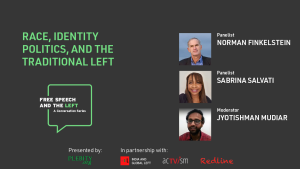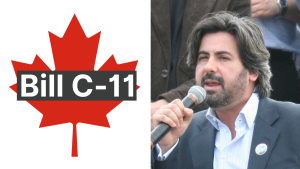Individualism is highly coveted in Western culture. Entire industries exist exclusively to profit off of our increasingly unhealthy preoccupation with ourselves. And with the arrival of the Internet, many more opportunities for people to express their individuality emerged.
Chatter about individualism grew amid the pandemic, with issues of identity being the focal point of many debates. The question of identity and its related discontents became a mainstay of public discourse.
These issues didn’t start in the pandemic, nor did they emerge with the rise of post-modernist thought – which has been years in the making. Indeed, today’s preoccupation with identity has a long history – and its popularity largely stems from transformative changes undergone in the centuries preceding, though at that time, it had a different name.
Early Origins of Identity
In the 19th century onwards, ‘alienation’ was an oft-used catch-all term used to describe a number of ailments rooted in individual discontent. Alienation was a recurring theme in Dostoyevsky’s Crime & Punishment, Henri Barbusse’s The Inferno, Jean-Paul Sartre’s Nausea, among other prominent works. Other thinkers also wrote at length about the concept: Erich Fromm examined what alienation looked like under capitalism; Karl Marx explored alienation within the constraints of the political economy; Hegel related alienation to a deficiency in social life, while Kierkegaard was concerned with alienation in modern society.
After WWII, alienation as a concept fell out of style. It was all but scrubbed from the collective consciousness, despite mountains of literature on the subject. Since then, it has been re-packaged and re-named as ‘individualism.’ Entire industries were created with the goal of catering to our subconscious desires and sensibilities. In the United States, the technological revolution was well underway, jobs were abundant, wages trended upward, middle class America was thriving – it was the economic Golden Age. But with the sudden uptick of suburbanization, questions of identity quickly emerged.
The psychiatry movement viewed this newfound obsession with the self as a pathological condition that must be treated, like a fast-moving contagion infecting suburbia.
Haunted by the Ego
In 1961, a relatively unknown psychoanalyst, Dr. Ernest G. Schachtel, penned an essay, On Alienated Concepts of Identity, detailing the way his patients experience alienation, or as he called it ‘a lack of sense of identity.’
The patients were, according to Schachtel, so haunted by their ego that their identity became the “main object of their worry, ambition, and preoccupation, crowding out any real concern with themselves and with others.” Their ego contributed to this feeling of lacking something, such as material possessions, prestige, certain personal qualities, or a different lifestyle. They were so preoccupied by their ego-fueled self, they would either withdraw completely or fall into a deep depressive state.
Some patients would try to convince the therapist that nothing could be done for them – that they could not change who they were, but upon closer inspection, it was discovered that the patients were either in denial, avoidant, or afraid to dig deeper at the root cause of their discontent.
The patient would quickly spiral into a perpetual cycle of crisis, in which they came to feel like a passive agent in their life. Instead of having a fixed identity, they sought for an identity which they could constantly shape and mold as they please.
This fixation with one’s identity was seen, and treated, as pathological.
But soon that would change.
Arrival of the Second Individualist Revolution
The establishment soon realized that this obsessive preoccupation with one’s identity was a gift to capitalism. It could be exploited and commodified through a number of growing industries: modern technology, advertising, mass marketing, mass production, and other institutions that catered to, and benefited from, this obsession of the self.
Margaret Thatcher, Britain’s prime minister from 1979 to 1990, and former US president Ronald Reagan championed individualism and undertook concerted efforts to tear the social and economic fabric of Britain and the United States. Both leaders, largely influenced by economist F. A. Hayek’s approach to free market capitalism, dogmatically fought for the project of the free economy.
In 1983, French philosopher Gilles Lipovetsky addressed this ideological turning point in his book, L’ère du vide. In it, he declared the arrival of post-modernism, in which extreme individualism reigned supreme. It was, according to Lipovetsky, the start of the ‘second individualist revolution.’
As it turns out, Lipovetsky’s shrewd assessments continue to shape discourse across Western culture today.
Individualism as we know it today is no longer seen as a pathology, but a necessity for economic growth. And since the Second World War, economic growth continues to be viewed as the lifeblood of a nation, of which mass consumption is a vital activity. Mass consumption depends on the hyper-individual to normalize and celebrate the acquisition of products out of desire and ego, not need. It is a way to signify that we belong to a certain group, and hyper-individualism requires the constant feeding of the ego. The industry of the self is a powerful, alluring force.
Previously, this phenomenon was seen as a deviation from the norm – something that must be fixed and corrected. Today, it is normalized, celebrated even – and we, the consumers, demand it. It does not deviate or challenge the capitalist systems, but is a continuation of them.
Individualism Goes Digital
Thanks to the ubiquity of digital devices and the Internet, many more opportunities for people to express their individuality emerged. The arrival of the digital age marked the beginnings of the ‘third individualist revolution.’
In the early days of the Internet, anonymity wasn’t uncommon. Big Tech hadn’t yet found ways to profit off our personal data. But soon, divulging personal information became a necessary requirement to gain access to platforms, seek out communities, shop online, play games, participate in forums, and so on. Sharing more of yourself is more readily accepted than not sharing anything at all. Those who choose to remain anonymous are often branded as paranoid, resistant, a Luddite, or technologically inept.
Within seconds, we’re able to create shiny new personas online – much of which doesn’t necessarily reflect who we are, but who we want to be. We spend a lot of time thinking about what we want to share—or not share: What kind of statement do I want to make? How do I want to be perceived? What kind of person do I want to be? What do I want people to know about me? And depending on the platform, the identifying information we share is more carefully crafted to appease that specific audience.
Reimagining the Digital Self
This information sharing rewards willing participants, and notably those who create carefully crafted identities. As a result, truth is based on disingenuity, and curated personas take precedence over substance. These disclosures aren’t limited to influencers, or users with established followings. None of us are immune to the temptation of cultivating a persona. Self-disclosures are done strategically based on a curated online identity that will attract the most viewers, because, as we know: identity is the currency of the web.
Now, we are all in an unspoken competition to present our best selves online, with every iterative persona being more nebulous than the last.
Lately, we’ve been going to greater lengths to craft our characters: some rent vacation homes to use as backdrops, others have gone the route of divulging more personal, and sometimes, perverse, information. On social media, users typically insert their hand-selected identities in their bios with mental illnesses, sexuality, political affiliations, marital status, race, ethnicity, fetishes, religion, and a number of other identifiers that are probably better off answered in a census, not a Twitter bio, are shared publicly. The character constraints of such bios forces users to create shorter, punchier descriptions of themselves. To that end, users spend more time navel-gazing about their identity; some even carefully select the right emoji that signifies to a certain group of people that they are either ‘one of them’ or that they need to stay away.
The obsessive exploration of the identity is creating more fractures offline. Oppressors vs the oppressed. Right vs left. Believers vs non-believers. The worker vs the owner. White collar vs blue collar. Educated vs non-educated. Rural vs urban. Black vs white. The list goes on. Within these divisions, even more identities emerge and clash. This toxic obsession with the identity is propagated by the establishment, too. Politicians are rewarded for casting the opposition as the enemy. The corporate media gets more clicks for perpetuating divisive partisanship rhetoric. Companies make more money when they exploit individual insecurities; workplaces urge employees to take personality tests and self-evaluations as a New Age solution to ‘better collaboration.’
Obsessions of the self evolved from something that needed to be treated to something that must be affirmed and celebrated.
Pacification of the Commons
As we’ve seen, identities are shared not only to cling to a sense of self and differentiate one from another, but also as a way to be validated by others. And when those identities aren’t validated, the person who seeks validation suffers an ego-fueled meltdown. If you don’t participate in the individualist revolution, then you run the risk of being persecuted yourself.
These new ways of seeking identities pull us further away from each other and prevent us from bridging differences. We are encouraged to differentiate ourselves from each other – creating more fissures in an already divisive society. The more identities we put on, the more separated we become.
Unfortunately, our self-chosen identities cannot fix wealth disparity, poverty, homelessness, failing economies, war, militarism and a host of other issues created and perpetuated by the ruling elite in Western nations.
The purpose of the identity is to create a constant state of anxiety and self-doubt. It is the ultimate state of pacification, in which willing participants eagerly take part, though the rewards are short-lived. It’s an immaterial concept that has no influence on other issues, but it has effectively divided the 99% even more.
Within the constraints of neoliberalism, and more pointedly, online, entire generations of people are demanding more from each other and from themselves – but not enough from the powers that control them.
Our leaders hardly had to lift a finger to divide us: we’ve done it all on our own. Just another distraction that only serves the powers-that-be who profit off our ego and insecurities. It is a ‘me against the world’ mentality where identity supersedes all.



